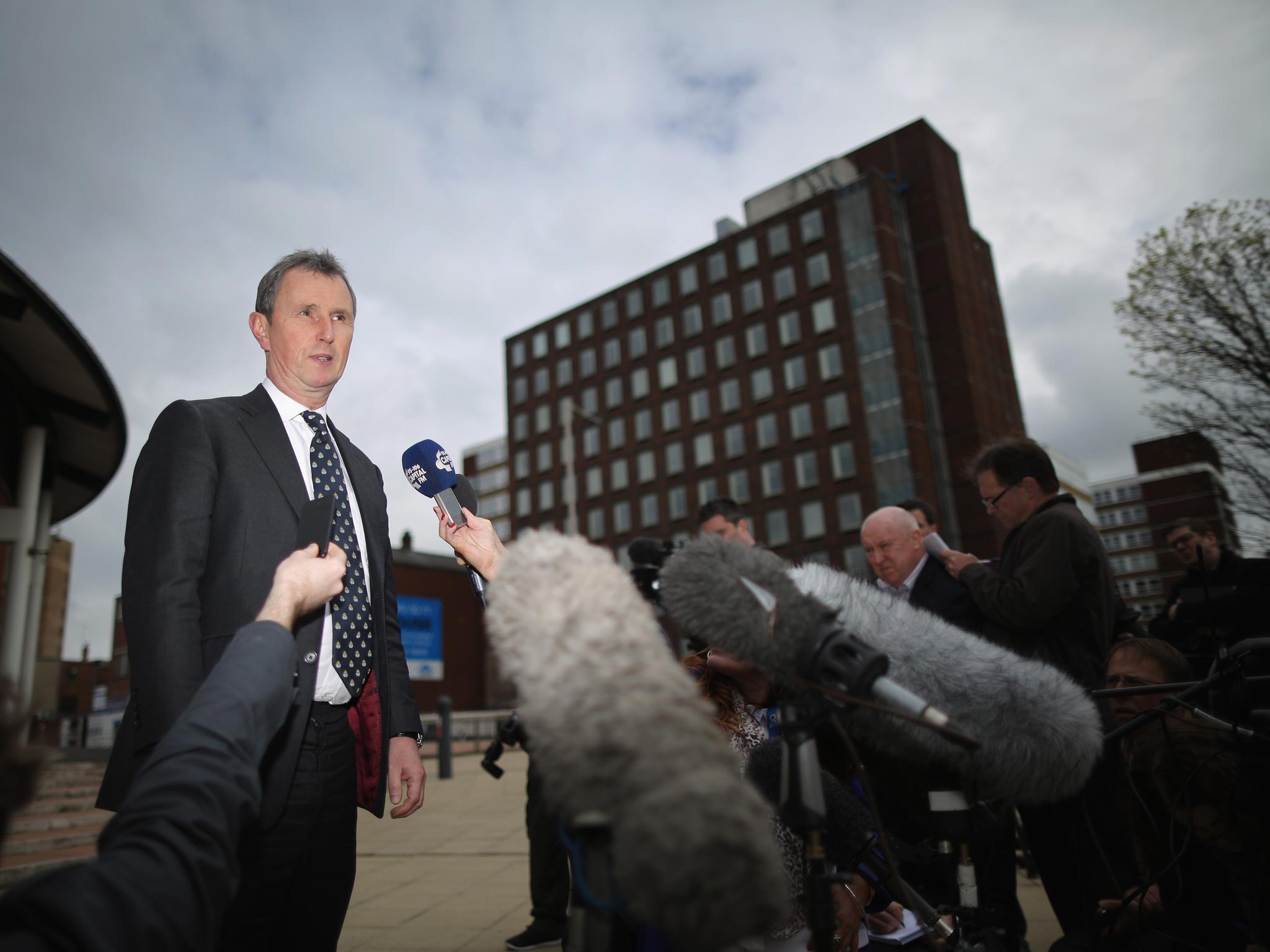Nigel Evans found not guilty: After MP is cleared of sexual assaults, parliamentary workers testify to alcohol-fuelled sexual harassment rife at Westminster after dark

A drink-fuelled and promiscuous Westminster culture allowed a small group of Tory MPs to make unwanted sexual advances on young male parliamentary staff, it can be revealed following the conclusion of the Nigel Evans trial.
Today Mr Evans, the former Deputy Speaker of the House of Commons, was unanimously cleared by a jury of a string of sex assaults, following a five-week trial at Preston Crown Court.
The jury accepted Mr Evans's defence that his behaviour had been the "high watermark of over-friendly, inappropriate behaviour by a drunken man" but did not amount to any criminal offence.
Now it can be reported that other, mainly Conservative, MPs regularly got drunk, "flirted" and made passes at young male parliamentary workers during Commons drinking sessions.
One researcher described how he was approached to "go to the Gents" with an MP at an event for young political activists while another said he had been subject to unwelcome advances after an MP invited his entire office staff to a gay bar.
One of the witnesses in the Evans case told The Independent that while he did not see himself the victim of a criminal act there should be a "curfew" in parliamentary bars to make it more difficult for inappropriate behaviour to take place.
"MPs are working away from home for three or four days at a time. You add to that the late nights, the drinks, the general sense of power and you can easily see a lot of people crossing over that line," he said.
Another parliamentary worker in his 20s at the time describes in The Independent how a group of mainly Tory MPs would regularly go drinking with staff in the building - which could lead to compromising situations.
"There would be quite senior MPs very drunk - flirting with us and sometimes more," he writes. "No one batted an eyelid. The day after it was always one of those things people would gossip about - they would shudder and say 'Did you see what happened last night?'"
The man said that it was not solely the case of the MPs taking advantage of younger staff. "I think there was complicity on both sides."
Tonight the Conservative Party said it would ask all its MPs to sign up to a new code of conduct setting out their rights and responsibilities as employers. There will also be a new party grievance procedure for staff.
But the scale of the problem was underlined by research by Channel 4 News which spoke to 70 people from all political parties and sexual orientations working in Parliament.
Forty per cent of the men questioned said they had received unwanted sexual advances while a third of those interviewed had personally experienced sexual harassment which they saw as an abuse of power.
One said: "At an event for young political activists I was asked to go to the gents by a certain MP who had always been a nice guy. I just brushed it off. The MP suggested I go to the toilets with him at about 1am, but at 3am I saw him going back to his hotel room with a guy who looked about 18."
Mr Evans, 56, wept in the dock of Preston Crown Court after he was cleared of nine charges, including rape, by the jury. In a statement on the steps of the court the former Deputy Speaker spoke of his "dark and lonely" time going through "hell" as an accused man. "As many of you know I've gone through 11 months of hell," he said. "All I can say is that after [all] that nothing will ever be the same again."
Mr Evans was found not guilty of one count of rape, five sexual assaults, one attempted sexual assault and two indecent assaults.
The verdicts have led to questions being raised about the approach of the Crown Prosecution Service (CPS) to sex cases.
The former shadow Home Secretary David Davis called for the practice of using lesser charges to "reinforce" a more serious one to be looked at.
"This case has highlighted serious concerns over how the police and the CPS bring sexual offence cases to court," he said. "In particular we must now review the process whereby the police and the CPS put together a large number of lesser, subsidiary cases in order to reinforce one serious case when prosecuting sexual offences."
But Lancashire Police and the CPS defended their handling of the case.
In a statement, the CPS said: "The complainants in this case provided clear accounts of the alleged offending and it was right that all of the evidence was put before a jury.
"That evidence could only be fully explored during a trial and the jury has decided, after hearing all of the evidence, that the prosecution has not proved its case beyond reasonable doubt. We respect this decision."
Detective Superintendent Ian Critchley, Lancashire Police's head of public protection, said: "We have worked closely with the CPS from an early stage, and all of the evidence was subjected to careful scrutiny before a decision was taken to charge, particularly where complainants did not see themselves as victims.
"Only after that very careful consideration was the decision made to put this before a jury."
Join our commenting forum
Join thought-provoking conversations, follow other Independent readers and see their replies
Comments